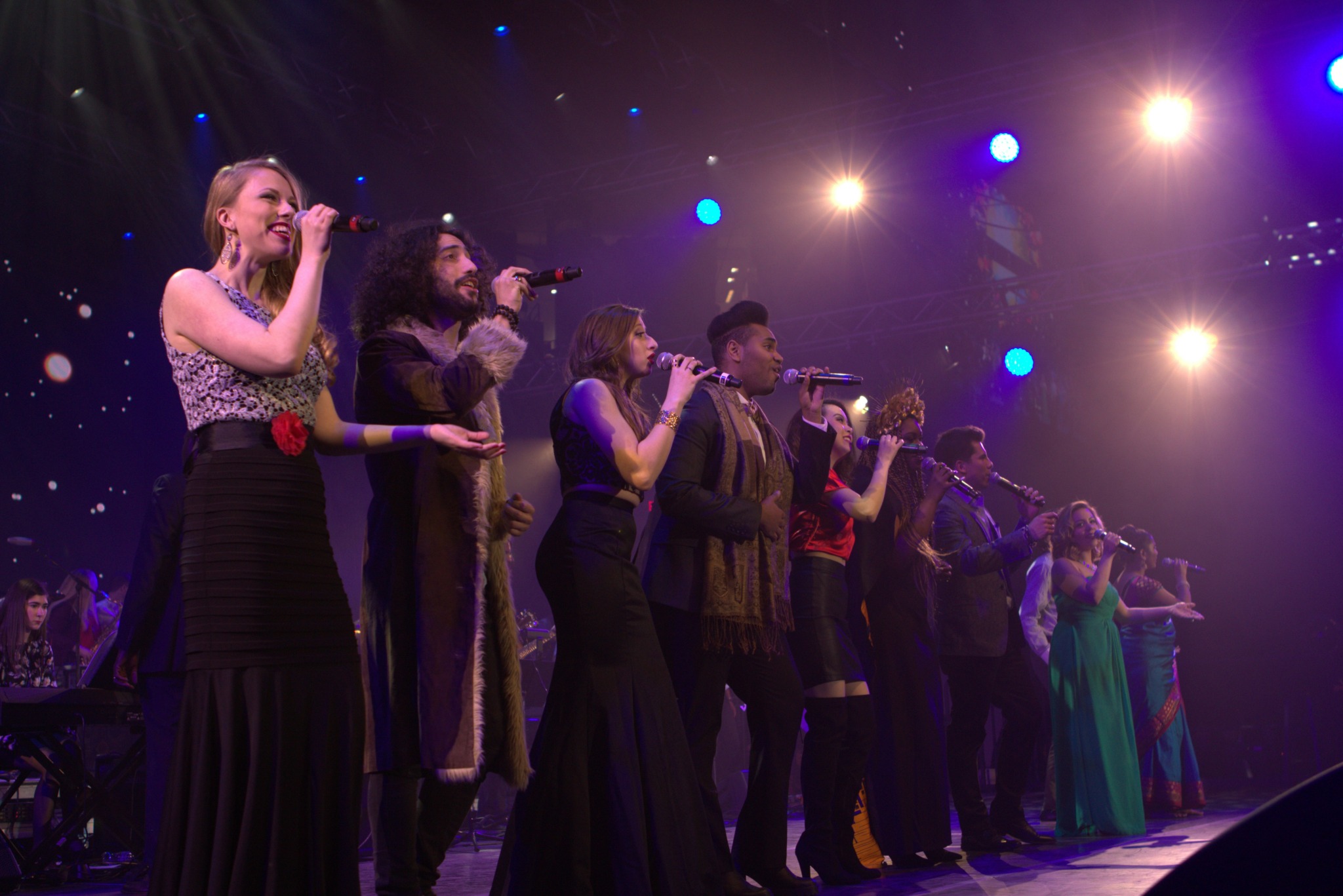We’re excited to introduce you to the always interesting and insightful Ester Wiesnerova. We hope you’ll enjoy our conversation with Ester below.
Ester, thanks for joining us, excited to have you contributing your stories and insights. Can you talk to us about how you learned to do what you do?
As a teenager in the small town of Partizánske, Slovakia, I fell in love with jazz. But there was one problem—I didn’t know a single person around me who shared that passion. So, I turned to Google, searching “how to sing jazz”, downloading textbooks, and noticing one name over and over: Berklee Press. That’s how I discovered Berklee College of Music and started secretly dreaming of studying there.
It felt impossible. No one I knew had ever studied in the U.S., and my family couldn’t afford even one semester. But I loved music too much to give up. I found a saxophonist in the capital who gave me lessons, a singer in Hungary who coached me when I could visit, and I attended jazz summer workshops, absorbing everything I could.
For my 18th birthday, I asked my mom if we could take a budget flight to Paris. What I didn’t tell her right away was that Berklee held auditions there. I kept it quiet—it seemed so unlikely I’d get in, and even if I did, how would I pay for it?
The audition felt terrible. I left convinced I had no chance. But months later, I was shocked—I got accepted. The next challenge? Funding. I googled the richest people in Slovakia and emailed every single one, asking for support. Incredibly, with help from generous donors, friends, and family, I scraped together enough for one semester. That one semester turned into a bachelor’s and then a master’s degree, with full support from the college.
Berklee and New England Conservatory gave me more than technical skills—they gave me confidence, a network, and a belief in my own voice. I’ll always be grateful for that chance. Now, I get to bring that experience full circle by making world-class music education accessible in Slovakia through “Za hranice s hudbou” (Music Beyond Borders), the non-profit I co-founded.

Awesome – so before we get into the rest of our questions, can you briefly introduce yourself to our readers.
I’m a vocalist, composer, and educator passionate about music’s power to connect and transform.
My journey into music was shaped by my mom, a songwriter who created spiritual music under Slovakia’s totalitarian regime. She faced heavy persecution for her work, yet her songs lifted people in their darkest moments—even preventing a few from taking their own lives. I was born soon after the Iron Curtain fell, and together, we continued bringing music to places where it resonated most. As a teenager, I sang in prisons, nursing homes, and hospitals, witnessing firsthand how music could change people. It was these moments that made me pursue it as a career.
As an artist, my work blends contemporary jazz and singer-songwriter influences with poetic depth and storytelling. I compose for film, radio, and acoustic ensembles, often featuring the human voice in unique ways. My debut album, Blue Journal, received praise from jazz magazines worldwide, was considered for the Grammys, and led to my role as a voting member of The Recording Academy. My music has taken me to stages across the world, from Asia to Africa, Europe, Latin America, and the US—including cities like London, New York, and Johannesburg. Along the way, I was honored to be recognized as one of Forbes 30 Under 30.
Beyond performing and composing, I’m deeply committed to music education. I’ve taught in over 20 countries, from conservatories in New Delhi and Slovakia to workshops across China and Latin America. I co-founded Za hranice s hudbou (Music Beyond Borders), a nonprofit that provides world-class music education to students of all backgrounds in Slovakia, reaching over 650 students annually.
For me, music is more than an art form—it’s a way to bridge worlds, spark change, and bring people home to themselves.

In your view, what can society to do to best support artists, creatives and a thriving creative ecosystem?
Support artists in tangible ways—buy their work, stream their music, attend their shows, and, if possible, contribute through platforms like Patreon. For many independent artists, every bit of support makes a difference in allowing them to keep creating. Beyond financial support, share their work, introduce it to friends, and talk about the impact it has had on you. Advocacy and word-of-mouth can be just as powerful as a purchase.
On a broader level, society can foster a thriving creative ecosystem by valuing the arts as essential, not just as entertainment. This means funding arts education, supporting grants and artist residencies, and ensuring fair pay for creative work. When artists are supported, they can continue to create, innovate, and contribute to a culture that enriches everyone.

Is there something you think non-creatives will struggle to understand about your journey as a creative? Maybe you can provide some insight – you never know who might benefit from the enlightenment.
For me, play and space are essential to creativity. A walk in the park isn’t just a break—it’s part of my process. I need room to let ideas breathe. People-watching, overhearing a conversation, or simply observing the world around me can spark a song or a composition. Things that may not look like “work” from the outside—daydreaming, exploring, reflecting—are actually a crucial part of creating.
Contact Info:
- Website: https://www.esterwiesnerova.com/en
- Instagram: @esterwiesnerova
- Facebook: https://facebook.com/EsterWiesnerova
- Linkedin: https://www.linkedin.com/in/ester-wiesnerova-8bb342157
- Youtube: https://www.youtube.com/@esterwiesnerova6002




Image Credits
Katie Hattier, Gaia Wilmer, Frantisek Petko, Laura Belisova, Tatiana Gorilovsky, Katarina Harsanyiova


